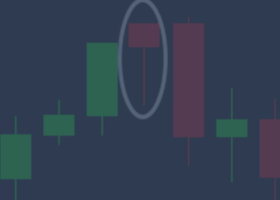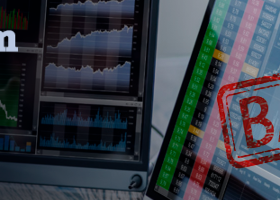
Institutions skip DMA, go for Algorithmic Trades, Co-Location
Institutions continue to rely on brokers providing cost-effective research reports and analyses, adopting technology solutions instead for greater efficiency Mumbai: Nearly seven years after the debut of direct market access (DMA), which allows investors to buy and sell shares directly on a stock exchange, the system has made little headway. Institutions continue to rely on brokers providing cost-effective research reports and analyses, adopting technology solutions instead for greater efficiency.
In regular stock trading, investors place their orders with brokers, who in turn execute them on the exchange. Under DMA, brokers provide electronic facilities for clients to place their orders directly on the exchange. These orders still go through brokers’ systems, but there is no manual intervention by them. One of the main reasons for the introduction of DMA was to check front-running, in which brokers take positions in stocks before executing large institutional orders. According to data released by BSE Ltd and National Stock Exchange of India Ltd (NSE), the average share of DMA in overall market turnover in the last three months was a negligible 0.22%. BSE data since November 2011 also show a tiny share for DMA. For a facility like DMA to succeed, there has to be a distinct cost benefit between trading directly on the exchange platform and going through a broker, market participants say.
That does not seem to be the case in India. “Unlike in the other developed markets, research advisory services in India are inexpensive, and so investors who would typically want to save on costs by using DMA would prefer trading through their broker and get access to reports, alerts, etc.,” said the product head of a leading domestic brokerage, who did not wish to be named. In the months of November, December and January, the share of DMA in the total turnover on NSE was 0.42%, 0.3% and 0.38%, respectively. On the BSE, the same months saw DMA’s share at 0.07%, 0.16% and 0.14%, respectively.
DMA appeals to large, corporate players and is delivered by large brokerages, but Indian markets have an abundance of small and mid-sized brokers, who do not find it viable to expand their technology infrastructure to offer the system, said Patrick Young, executive director at DV Advisors, a Europe-based capital markets advisory firm. Meanwhile, many institutions have taken to algorithmic trading and co-location to execute trades faster. In algorithmic trading—algo in market parlance—advanced software is programmed to automatically execute trades using algorithms or mathematical models, based on pre-defined parameters. Co-location refers to bourses allowing members to set up automated trading systems on their premises to reduce latency, or the time required for orders to flow between the exchange and the broker’s trading system.
Interestingly, while algo trades have gained ground on BSE, its larger rival NSE is ahead in co-location. In the three months to January, algo trades contributed an average 30.57% of monthly turnover on BSE. “The reason for co-location showing a higher share on NSE is that it is typically used in options, which is more thriving on NSE, which also scores on liquidity, lower impact cost and availability of multiple asset classes and instruments,” said the brokerage product head cited above. On NSE, algos accounted for an average 16.34% of monthly trades in the same period. While BSE has less than 1% of its turnover originating from co-location trades, NSE, on an average, saw 21.67% of its turnover in the last three months from co-location servers. According to Young, NSE held a significant technological lead over BSE at the time when co-location was approved by the regulator and hence commands a larger share. However, he adds that since then BSE has vastly upgraded its software systems and could soon close the gap.


